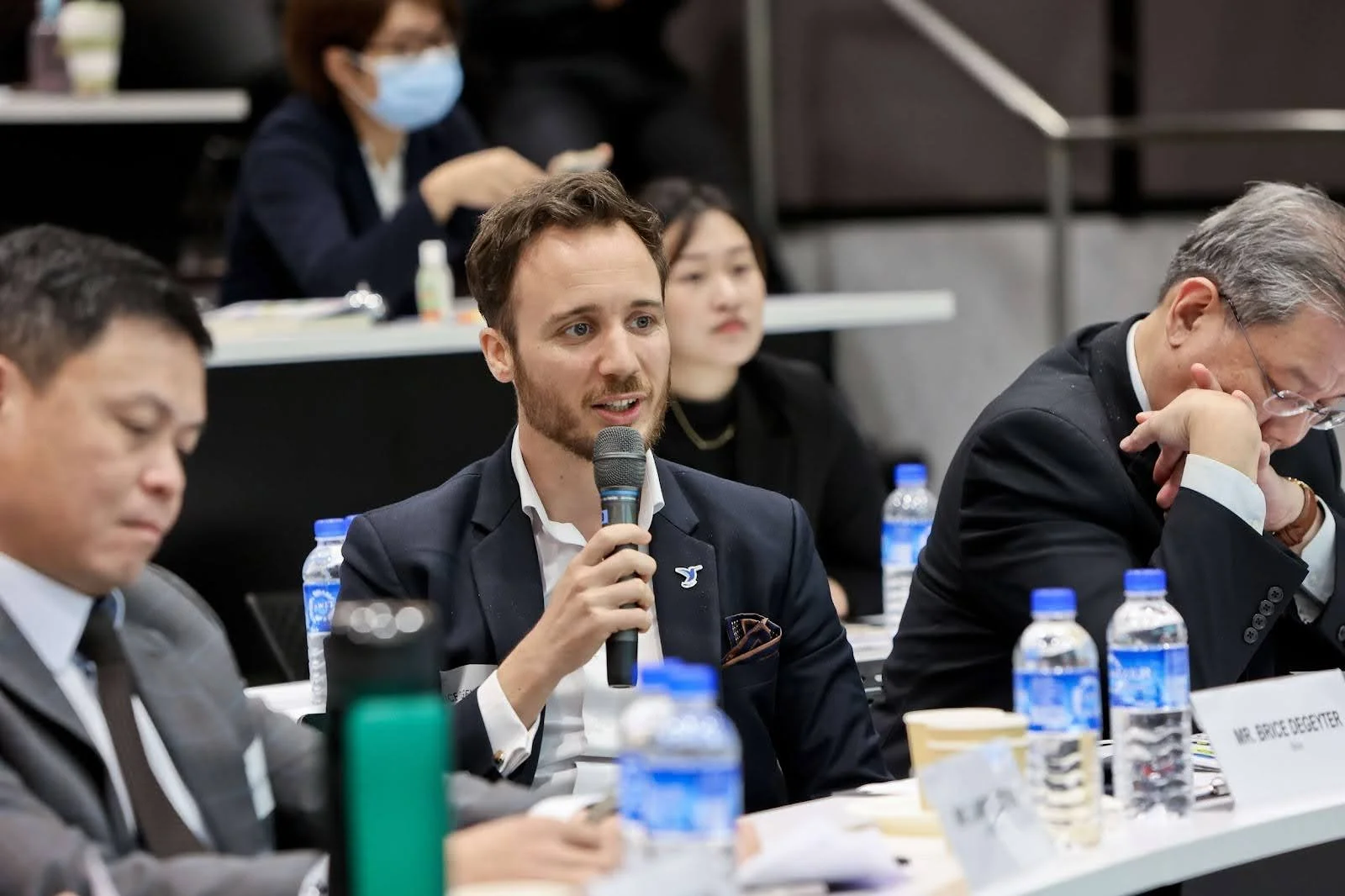
Brice Degeyter: Innovating Sustainable Solutions for Urban Decarbonization
Brice Degeyter on simplifying decarbonization for companies
This week, theTTI Interview Series covers our member Brice Degeyter. Traveling in different cities, Brice was shocked by how badly cities were treating our environment and, after doing his research, he was amazed by the solutions and opportunities that exist to change the game. In 2019, he founded Bizsu to make decarbonization simple for most companies. They offer easy ways to save up to 60% of energy on what consumes up to 30% of cities' carbon emissions: air-conditioning. Their clients include some of the biggest local and global companies (CapitaLand, Marina Bay Sands, OCBC, Keppel Land, JLL, Food Panda, and NUHS). He is also a professor of entrepreneurship and sustainability at ESSEC Business School, a TEDx speaker, and the TTI Singapore ambassador.
Brice Degeyter on simplifying decarbonization for companies
This week, theTTI Interview Series covers our member Brice Degeyter. Traveling in different cities, Brice was shocked by how badly cities were treating our environment and, after doing his research, he was amazed by the solutions and opportunities that exist to change the game. In 2019, he founded Bizsu to make decarbonization simple for most companies. They offer easy ways to save up to 60% of energy on what consumes up to 30% of cities' carbon emissions: air-conditioning. Their clients include some of the biggest local and global companies (CapitaLand, Marina Bay Sands, OCBC, Keppel Land, JLL, Food Panda, and NUHS). He is also a professor of entrepreneurship and sustainability at ESSEC Business School, a TEDx speaker, and the TTI Singapore ambassador.
What is your own definition of impact?
Impact means creating, directly or indirectly, a positive outcome for the environment and people over the long term.
What do you believe is one of the most important issues that need to be solved over the next 10 years?
One of the most important issues that needs to be solved over the next 10 years, is the unknown importance of energy efficiency to limit our energy needs without altering our daily comfort. We are indeed still wasting a lot of energy by having inefficient buildings as much as cooling/heating systems.
Then, we need to ease the transition to low-carbon energy sources. This involves increasing the adoption of lasting renewable sources while incorporating nuclear energy.
Additionally, improving energy storage technologies, upgrading grid infrastructure, developing nuclear fusion, and implementing supportive policies are crucial steps
What do you think are some of the biggest challenges in the impact space, standing in the way of providing solutions faster?
The built environment represents around 40% of our global emissions. 2/3 is due to the maintenance/management of buildings, in which up to 80% is impacted by air-conditioning and heating.
Hence, reducing energy (HVAC) consumption and usage in buildings is crucial and, in many cases, we have seen 50% savings by simply applying free common sense behaviours.
Tell us more about the long-term vision you have
for your work and how you measure & quantify your impact.
Our long-term vision is to make decarbonization simple for most companies with the first step of avoiding 1,000,000 tons of CO2 going into the atmosphere. We measure easily by evaluating the amount of energy saved in each building, converted into CO2.
What are some of the misconceptions you’ve noticed regarding what impact is all about?
Through my work, I’ve noticed several misconceptions about "impact":
Short-Term Focus: Many people think impact is immediate and short-term, but true environmental impact requires long-term commitment and sustained effort.
One-Dimensional View: There's a belief that impact is only about reducing carbon footprints. While important, impact also includes biodiversity, water conservation, and pollution reduction.
Tech-Only Solutions: Many assume technology alone can solve environmental issues, even though Nature is our best ally. To solve Nature issues, Nature has indeed much more experience and capabilities than any human-made technology. We then need to learn from it and play with it. Lastly, we must educate people vastly and widely to bring behavioral changes and powerful policy measures.
Economic Trade-Off: There's a misconception that environmental impact always comes at an economic cost but, first, it can bring direct financial incentives (with buildings/facilities energy efficiency for example) and then, even if it's a cost, it will lead to economic benefits in the long run.
Interested in connecting with impact-driven investors, founders, and experts across different sectors? 🚀
Visit our network page to join our global community & gain exclusive access to investment opportunities, partnerships, deals, knowledge exchange, and more!





